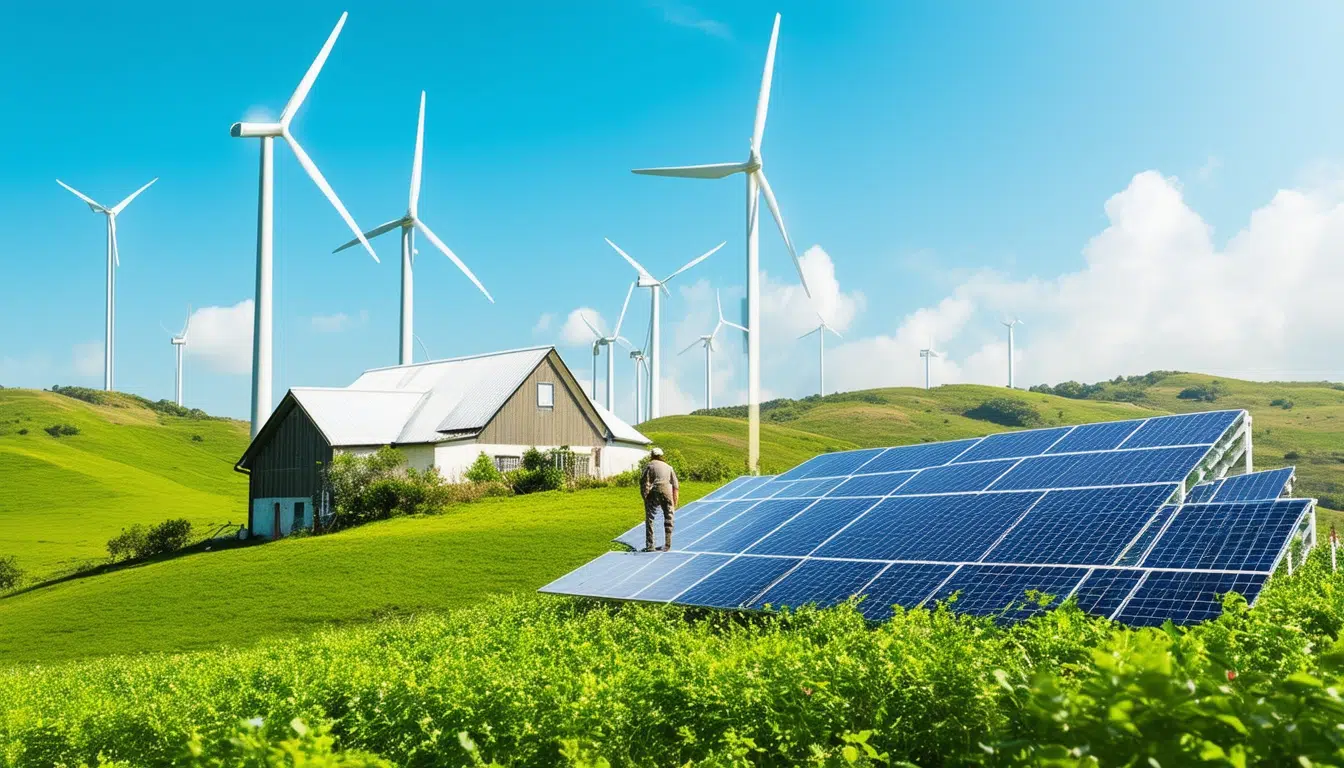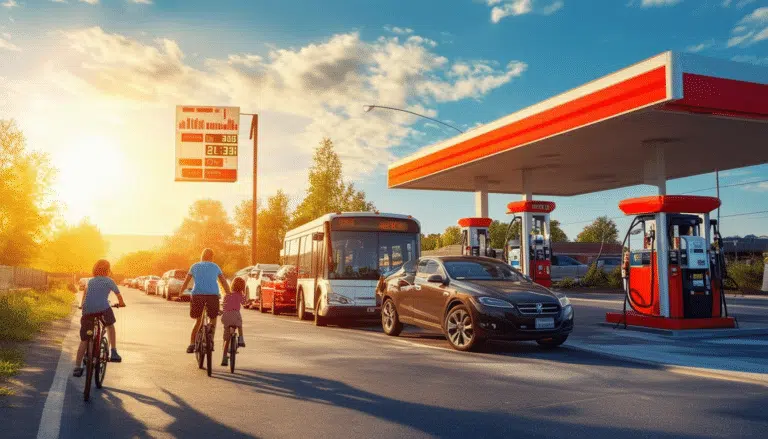El papel de las energías renovables en la reducción de gasto en combustible

The use of renewable energies has become an essential solution to tackle the challenge of fuel spending, especially in a global context where energy demand continues to rise. These clean energy sources, such as solar, wind, and geothermal, not only reduce our dependence on fossil fuels but also offer a viable alternative to reduce costs in the long term. By integrating renewable technologies, a more sustainable and efficient energy system is promoted, thereby contributing to the reduction of polluting emissions and the economic well-being of communities.
Renewable energies have become an indispensable option to decrease fuel spending and mitigate the negative effects of climate change. This article delves into how sustainable energies, like solar, wind, and geothermal, contribute to a more efficient economy that is less dependent on fossil fuels. By adopting clean technologies and optimizing energy use, we can achieve a significant reduction in carbon dioxide emissions and considerable economic savings.
Transformation of the energy sector
The energy sector is undergoing an unprecedented transformation, primarily driven by the adoption of renewable energy sources. This transition not only has a positive environmental impact but also represents an opportunity to reduce fuel spending. The more invested in clean energy, the less the dependence on fossil fuels, which in turn allows for more effective control over energy costs.
Energy efficiency as an ally
In addition to increasing the use of renewable energies, it is essential to focus on energy efficiency. The implementation of high-efficiency technologies, such as optimized heating and cooling systems, can help reduce energy consumption. For example, by improving the efficiency of our homes and buildings, it is possible to decrease the amount of fuel needed to keep them functioning, resulting in notable savings.
Economic benefits of renewable energies
When the use of renewable energies increases, not only are greenhouse gas emissions reduced, but a positive economic impact is also generated. As more households and businesses implement solar or wind energy systems, for example, electricity costs tend to decrease. This not only provides relief for consumers but also contributes to overall economic stability.
Lower dependency on imports
The use of renewable energies also means that countries can rely less on imports of fossil fuels. This is especially true in regions where renewable resources are abundant. By boosting local energy production, import costs decrease and the trade balance improves.
Challenges and opportunities
The energy transition involves facing several challenges, such as the need to invest in infrastructure and technology. However, these difficulties also represent opportunities. Technological innovation in the field of renewable energies is evolving rapidly, and the solutions arising from these developments can lead to even greater reductions in fuel spending. For example, advances in electric motors and sustainable mobility provide increasingly viable and economical alternatives.
Political and regulatory initiatives
Government policies also play a crucial role in facilitating this transition. Initiatives like the Inflation Reduction Act in the U.S. and various European Union programs aimed at promoting energy efficiency are clear examples of how legislation can demand a significant change in the use of renewable energies. For more information on how these initiatives are transforming the sector, one can refer to this article on energy savings.
The energy future and its implications
Looking to the future, the increase of renewable energies will be essential to achieve sustainability goals. Projections indicate that by the year 2050, it is possible to decarbonize up to 90% of the energy sector, which would not only represent a massive cut in carbon emissions but also drive a real economic change. Electric mobility and the use of biofuels are just some of the strategies being implemented to achieve this objective.
Optimizing energy savings in the supply network and implementing such technologies are key. Those interested can explore more about the climate impact on fuel spending through this link: climate change and energy consumption.
Renewable energies emerge as a fundamental solution not only for the reduction of greenhouse gas emissions but also to optimize fuel spending. The transition to clean energy sources such as solar, wind, and geothermal allows for a significant decrease in dependence on fossil fuels, which has a direct impact on the economy of households and businesses.
The implementation of energy efficiency technologies along with the use of renewable energies contributes to a more intelligent and responsible use of energy. For example, high-efficiency heating and cooling systems require less energy and, therefore, reduce the consumption of traditional fuels. This translates into lower energy bills and a boost towards sustainable development.
In addition, by increasing the use of renewable energies, vulnerability to fluctuations in the global fuel market is reduced. Lower dependence on imports not only stabilizes costs but also strengthens a country’s energy security. This proactive approach creates a pathway toward a future where energy is obtained more sustainably and economically.
As technology advances and more infrastructures are deployed to capture and utilize renewable energy, production and maintenance costs will decrease even more, benefiting both consumers and businesses. The future of energy consumption looks promising, and renewable energies are at the heart of this transformation, providing a viable and economic alternative in a world seeking solutions to current environmental and energy challenges.




